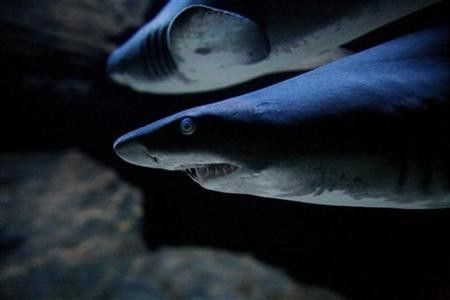A 'Living Fossil' Frilled Shark Found In Waters Of Victoria

A rare frilled shark with 300 teeth was found in waters near Lakes Entrance in the Gippsland region in Victoria by a fishing trawler. The shark was named the "living fossil" as its ancestry dated back 80 million years ago, reported Yahoo! News.
The species was found in a depth of 1,500 metres into the waters. Usually, the species, which captured its prey by bending its body in a way similar to the snake, lived in the shallower parts of the water at a depth of about 1,200 metres.
The Commonwealth Scientific and Industrial Research Organisation (CSIRO), a national science agency in Australia, have confirmed that it was a frilled shark. The scientific community seemed to be aware of such species, while the local fishermen were surprised with the rare find. It was speculated that the shark had been sold, but the CSIRO have dismissed it.
Simon Boag, the executive officer of the South East Trawl Fishing Association, a body that represents the interests of the trawl fishermen in the south-east of Australia, said that it was the first time that a frilled shark, which measured two metres in height, had been seen. He said that they could not find a fisherman who had seen a frilled shark before.
According to Boag, the shark looked prehistoric, almost 80 million years old. He exclaimed that it looked like it was from another time. He explained that the local fishermen were scratching their heads after looking at the shark as the head and the body resembled an eel, while the tail looked similar to that of a shark.
Boag went on to say that the shark had 300 teeth over 25 rows. He explained that if anything was caught in its mouth, there were no chances of it coming out of the mouth. He said that it was a freaky thing and that he thought that one would not want to show it to children before they went to bed.
Boag said that the rare organism was caught at 700 metres but did not expect more of such sharks to be found. He explained that almost all the ground which was deeper than 700 metres were closed for trawling because of which there would not be any pressure on the sharks. He said that the shark was just unlucky.
Contact the writer: afza.kandrikar@gmail.com





















